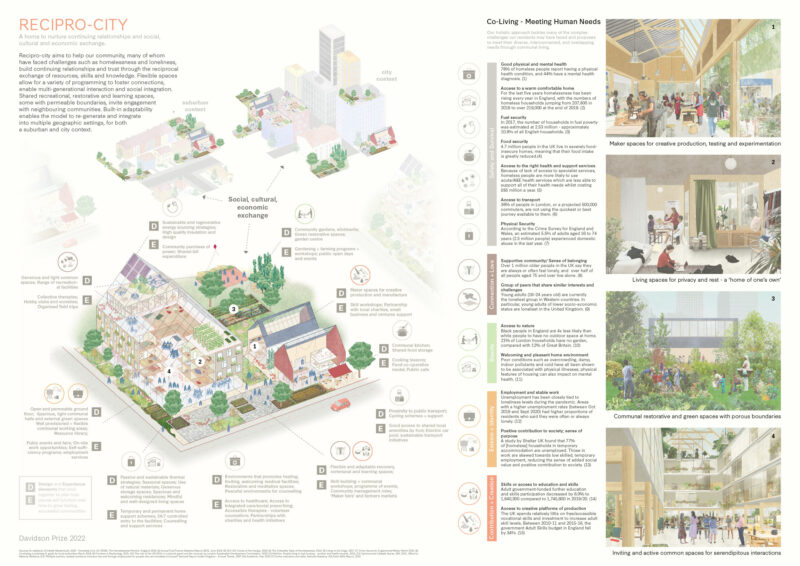
Recipro-City
Heta Architects
Recipro-City’s community is drawn from vulnerable or marginalised groups or individuals whose neurobiology or life experiences have led – or forced – them to seek an alternative way of living. The concept proposes a model for co-living built on a reciprocal framework of positive, life-affirming actions. It provides opportunities for people to develop bonds that help address the challenges faced by this community, particularly loneliness and homelessness. As mainstream ways of living together or having a home of one’s own become increasingly inaccessible, this proposal is a move away from traditional ways of assigning value to things.
Instead, the design is built around the mutual exchange of resources, skills and knowledge. Rather than conventionally paid work, self-selected interests define how people contribute and live as valued members of society, enabling individuals to grow over time.
Flexibility and adaptability are built into spaces that foster connections, including shared recreational and educational facilities, workshops, and restorative and recovery spaces, some with permeable boundaries to enable engagement with neighbouring communities. Integrating economic, cultural and social exchange, these spaces can be secured when necessary or opened up for community and public engagement with ground floor uses and maker spaces.
The model is intentionally a work in progress, allowing people to shape how their community looks, acts and feels.
Heta Architects
Fernando Da Col, Associate Director/Project Lead
Amanda Dolga, Architectural Assistant
Namrata Krishna, Associate - Human Design
Lorraine Chan, Architectural Designer
Jon Fielding, Consultant
Catherine Borse, Wellness Design Consultant
Building with Nature
Dr Gemma Jerome, FLI Director